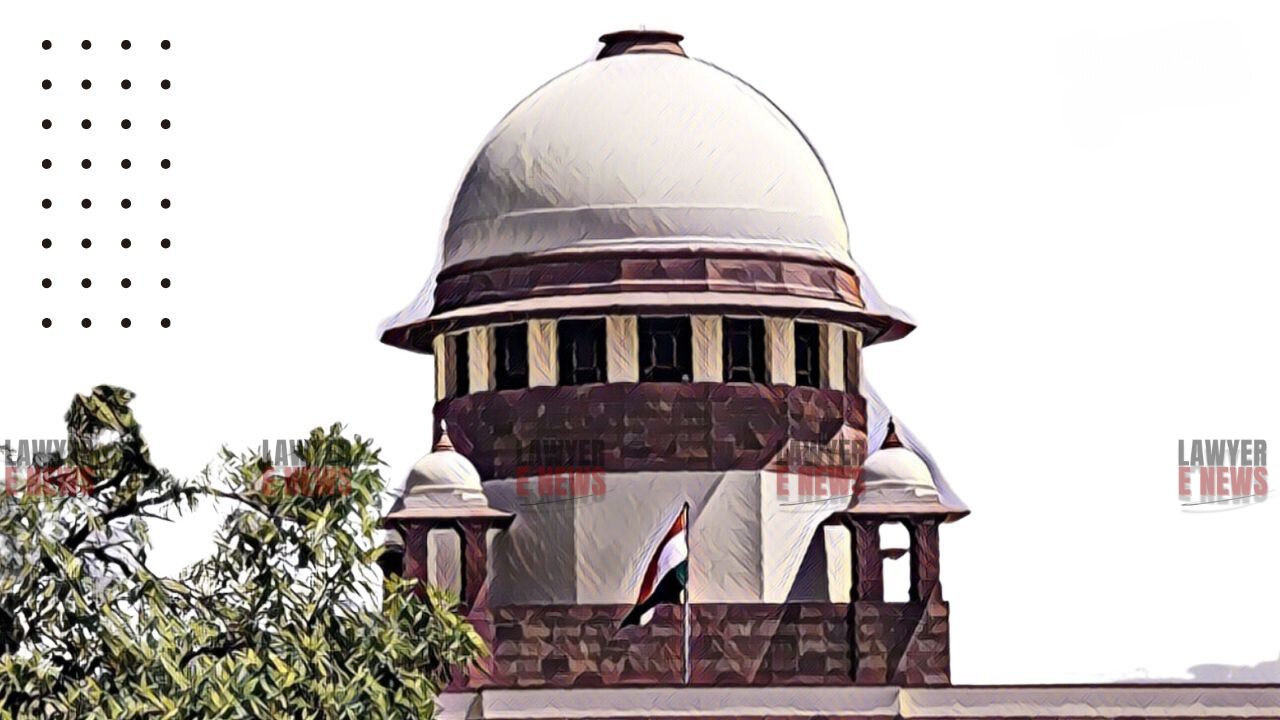-
by sayum
14 February 2026 2:22 PM



In a significant ruling, the Supreme Court held a police inspector and a judicial magistrate in Surat guilty of contempt for willfully disobeying a previous order granting anticipatory bail, highlighting the critical importance of judicial compliance.
In a landmark decision, the Supreme Court found Police Inspector R.Y. Raval and Magistrate Deepaben Sanjaykumar Thakar guilty of contempt for willful disobedience of the Court’s order granting anticipatory bail to the petitioner, Tusharbhai Rajnikantbhai Shah. The judgment underscores the judiciary's intolerance towards any form of non-compliance with its directives, particularly in matters of personal liberty.
The case centers around an FIR filed by respondent Abhishek Vinodkumar Goswami, alleging that Shah received ₹1.65 crores for the sale of 15 shops but failed to transfer possession as agreed. Fearing arrest, Shah sought anticipatory bail, which was denied by both the Sessions Court and the High Court. The Supreme Court, however, granted interim anticipatory bail on December 8, 2023.
Despite this order, Shah was arrested by Inspector Raval, remanded to police custody by Magistrate Thakar, and allegedly subjected to custodial torture. The petitioner claimed that this custody and subsequent treatment were in direct violation of the Supreme Court’s order. A contempt petition was filed, challenging the actions of the police and judicial officers involved.
The Supreme Court emphasized that its December 8, 2023, order granting anticipatory bail was "clear and unambiguous," leaving no room for misinterpretation. The Court held that the actions of Inspector Raval in seeking police remand, and Magistrate Thakar in granting it, were in flagrant defiance of the order, amounting to contempt of court. "The language of the order was explicit, and no reasonable officer could have entertained a doubt about its meaning," the bench observed.
The Court scrutinized the remand application filed by Inspector Raval, finding that it lacked substantial justification. The remand was sought under the pretext of non-cooperation by Shah, despite the fact that Shah had appeared at the police station immediately upon being summoned. The Court noted that non-cooperation cannot be equated with a refusal to confess, stating, "There would be no obligation upon the accused to confess to the crime for the investigation to be deemed cooperative."
Magistrate Thakar’s decision to grant police custody remand was sharply criticized. The Court found her actions not only unjustified but also indicative of a biased approach. Further, her subsequent handling of Shah’s complaint of custodial torture, including conducting a physical inspection of Shah's injuries, was deemed improper. The Court remarked that such examinations fall within the purview of medical experts, not judicial officers.
The bench, in a stern rebuke, stated, "The conduct of the Investigating Officer and the Magistrate in seeking and granting police custody during the subsistence of the Supreme Court’s order is nothing short of a blatant disregard for the rule of law." The judgment further noted, "Judicial orders, especially those concerning personal liberty, must be followed to the letter. Any deviation from this principle undermines the very foundation of justice."
The Supreme Court’s ruling serves as a strong reminder of the judiciary’s commitment to upholding the rule of law and the protection of individual liberties. By holding the police officer and the magistrate accountable for their actions, the Court has reinforced the critical importance of adherence to judicial orders. This judgment is likely to have significant implications, ensuring stricter compliance with court directives in future cases, particularly those involving personal liberty and anticipatory bail.
Date of Decision: August 7, 2024
Tusharbhai Rajnikantbhai Shah v. Kamal Dayani & Ors.
